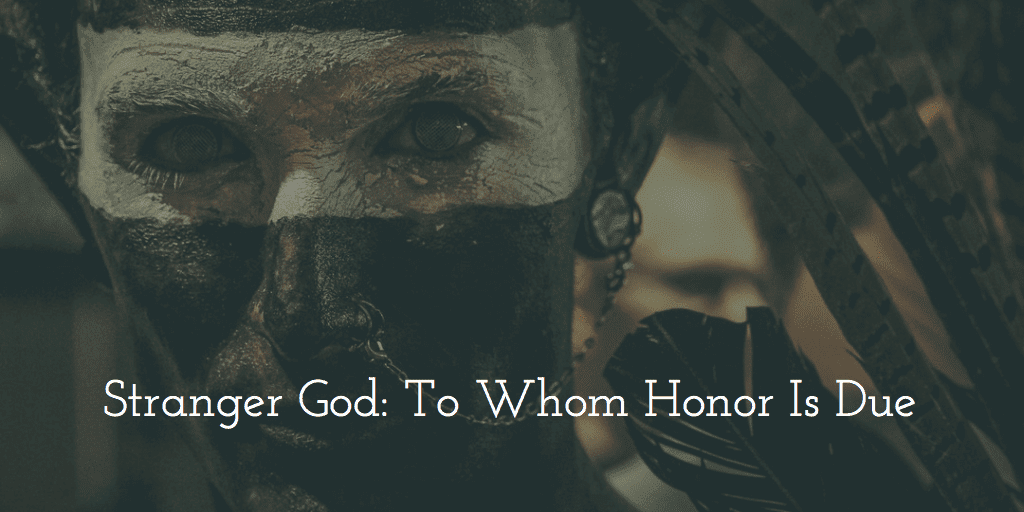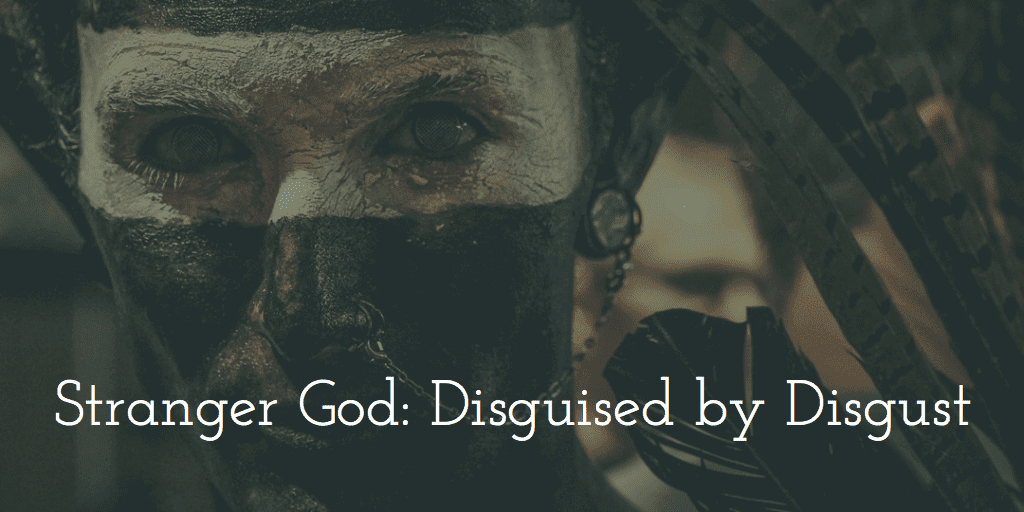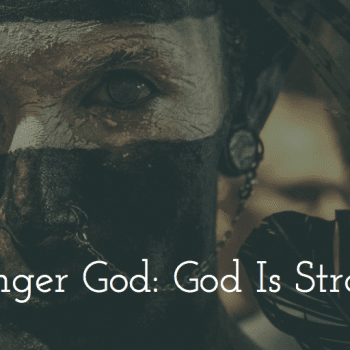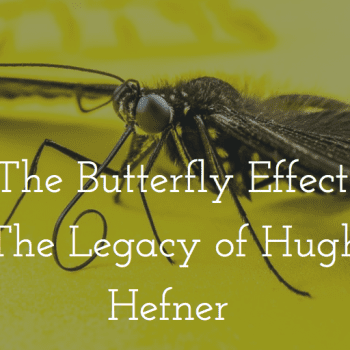 There may or may not be a God.
There may or may not be a God.
I’m saying this up front, because after a title like “Proving God” it’s important not to bury the lede.
Worked into being a person of faith is an awareness that we could be wrong about something which we are staking much on. That’s why we use the word Faith…it’s a loaded synonym for other words like risk or chance.
Because what if there isn’t a God? What if it is all just one big human construct, a projection of wish fulfillment started not long after human beings developed the capacity for language and started asking questions about what happened to those family members who stopped breathing?
What if?
For a lot of us, even opening up that as a possibility makes us uncomfortable, it sounds like a slippery slope that leads to reading books by Sam Harris or Richard Dawkins and writing angry rambling Facebook rants by people who are just as certain that there isn’t a God as we are certain that there is One.
So for the past century or two what people in the West have done with this uncomfortableness is to use a certain kind of logic to prove that God exists. We call it apologetics and often it’s clumsy and sometimes even false (ends justify means right?) and we argue/yell with the certain atheists about why we are right and why they are wrong using the same categories of reasoning but with very different outcomes.
Each side trots out their intellectual giants who support their position articulately and we talk about watchmakers and monkeys on typewriters and then put that Jesus fish on our car that shows our fish eating their fish (apparently the one Darwin invented has legs on it).
And we make a fundamental error in how we talk and think and dream about God.
Rob Bell pointed out a few years ago that when we argue about God we often use Math Talk, but when the Bible talks about God it uses Poetry. Since the Enlightenment, we’ve increasingly started talking about God with data and charts and stats and….evidence.
But the Bible never tries to prove God, it assumes God, and not just any God, but a certain kind of God, and to that end the Bible speaks in poetry and prophecy and story…and psalms.
The Bible starts off with a poem that is a song, it ends in Revelation with a lot of singing, and the longest book of the Bible is the Psalms. In the face of hostility in the New Testament, the people of God would argue and debate, but mostly they sang.
What an odd response.
Steve Jobs once told YoYo Ma that hearing him play the Cello was the best evidence that he knew of that there was a God.
Think about that.
Steve Jobs had been to church, he had given Christianity (and several world religions a try), and this creative genius had mostly walked away from all of it. There was no evidence that demanded a verdict for him. Until he heard YoYo Ma play.
For the longest time, when people who were struggling with their faith asked me for a book recommendation I would give them Tim Keller’s Reason for God, which is still a great and fine resource for people whose struggle with God is mostly intellectual.
But I don’t think that’s most of my friends struggle these days. So instead, the book I recommend the most, is Unapologetic by Francis Spufford.
It’s laced with profanity, spends little to no time on apologetics and is the most moving book I’ve read in 5 years.
And the reason I recommend this book to so many people because it’s beautiful.
Spufford is not your typical Christian author, he’s not a pastor (but he is married to an Anglican priest) he’s a novelist whose love of literature and writing has made him a word surgeon who deftly describes why he (as a Christian turned Atheist turned Christian again) thinks Christianity still makes surprising emotional sense.
If your struggling with your belief in God there’s a chance Spufford’s work will help, but it will certainly restore your faith in the English language.
I’m serious about this, I’ve told a lot of my older pastor friends about this because I think the Spufford vs. Keller line of talking about God to a generation of agnostics going on atheist has real merit.
Beauty is not a sidebar apologetic for us to use when we want to counter the questions about suffering in the world.
Beauty is the apologetic.
It is God’s way of getting us outside of ourselves and outside of our heads.
At least it was for Spufford.
Back in 1997 when Spufford was still in his atheist phase, he said that he was sitting in a cafe working on a book when Mozart’s Clarinet Concerto began to play. He was in a dark place in his life, “I couldn’t see any way out of the sorrow without some obvious self-deception”
When Mozart’s song began to play he said it was exactly what mercy would sound like.
Here’s his words:
It does not sound as if Mozart is doing something he can only just manage, and it does not sound as if the music is struggling to lift a weight it can only just manage. Yet at the same time, it is not music that denies anything. It offers a strong, absolutely calm rejoicing, but it does not pretend there is no sorrow. On the contrary, it sounds as if it comes from a world where sorrow is perfectly ordinary, but still there is more to be said. I had heard it lots of times, but this time it felt to me like news. It said: everything you fear is true. And yet. And yet. Everything you have done wrong, you have really done wrong. And yet. And yet. The world is wider than you fear it is, wider than the repeating rigmaroles in your mind, and it has this in it, as truly as it contains your unhappiness. Shut up and listen, and let yourself count, just a little bit, on a calm that you do not have to be able to make for yourself, because here it is, freely offered. You are still deceiving yourself, said the music, if you don’t allow for the possibility of this. There is more going on here than what you deserve, or don’t deserve. There is this, as well. And it played the tune again, with all the cares in the world.
What broke through Spufford’s heart that day was not a proposition, it was a melody. And to be clear, he believes the propositions…here’s how he says it just a few paragraphs later:
I am a fairly orthodox Christian. Every Sunday I say and do my best to mean the whole of the Creed, which is a series of propositions. No dancing about; no moving target, I promise. But it is still a mistake to suppose that it is assent to the propositions that makes you a believer…What I felt listening to Mozart in 1997 is not some wishy-washy metaphor for an idea I believe in, and it’s not a front behind which the real business of belief is going on: it’s the thing itself…I think that Mozart, two centuries earlier, had succeeded in creating a beautiful and accurate report of an aspect of reality. I think that the reason reality is that way, is in some ultimate sense merciful as well as being a set of physical processes all running along on their own without hope of appeal, all the way up from quantum mechanics to the relative velocity of galaxies by way of “blundering, low and horridly cruel” biology (Darwin), is that the universe is sustained by a continual and infinitely patient act of love.
I think that love keeps it in being. I think that Dante’s cosmology was crap, but that he was right to say that it’s “love that moves the sun and all the other stars.”
I believe this in my bones, I think it’s truer than anything else in the world, but I can’t prove it.
I can at best learn how to play it.












